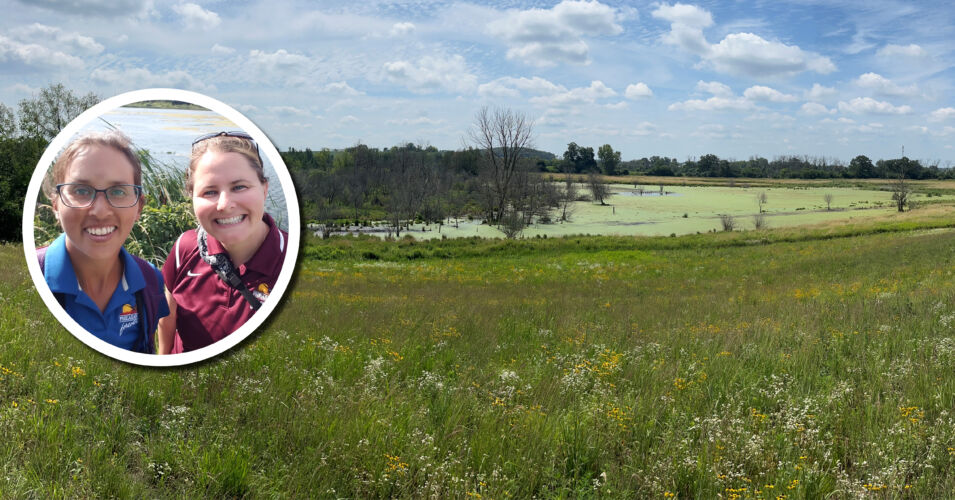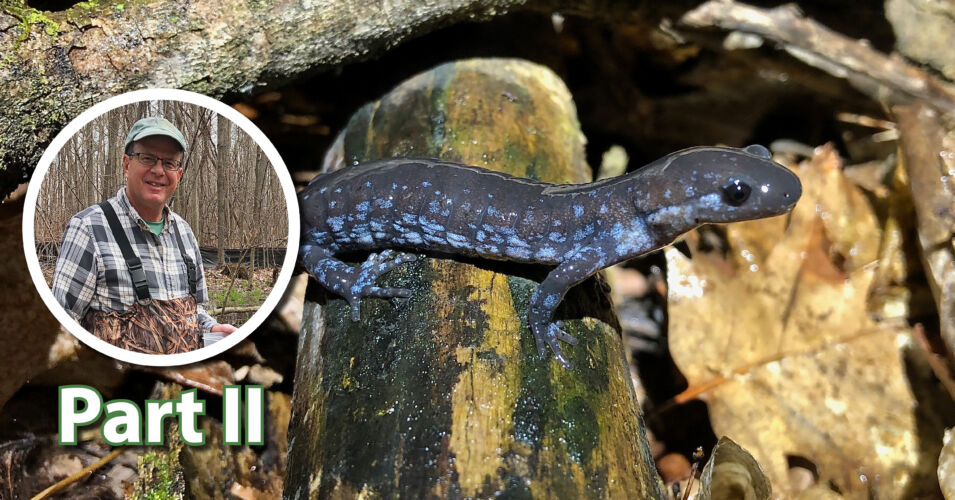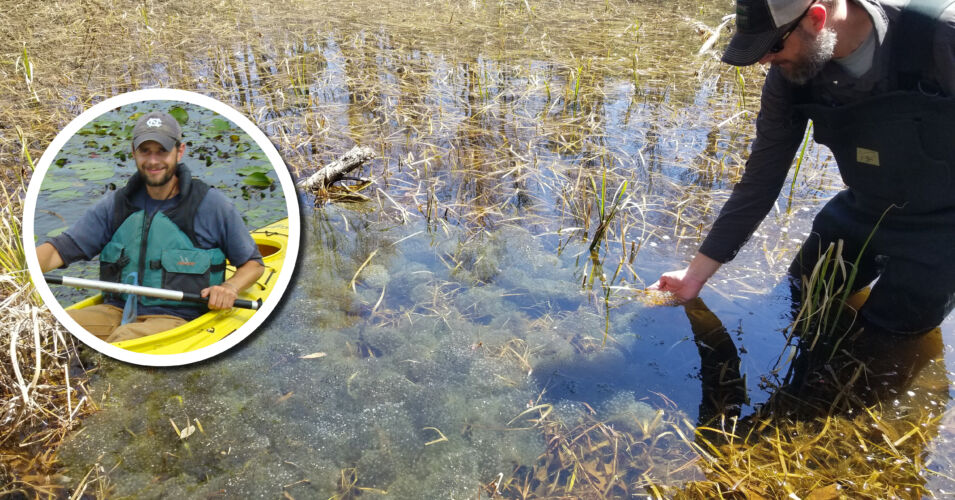
by Wisconsin Wetlands Association | Nov 17, 2023 | For landowners, News, Wetland Coffee Break
Learn from Tally Hamilton and Gretchen Skudlarczyk—wetland experts with years of experience working with private landowners—about some of the practices and programs available to restore and enhance wetlands on private lands.

by Wisconsin Wetlands Association | Nov 6, 2023 | For landowners, News, Wetland Coffee Break
Learn more about the multi-year citizen science amphibian-focused research project studying ephemeral ponds in east central Wisconsin from citizen-scientist Greg Burns.

by Wisconsin Wetlands Association | Oct 23, 2023 | For landowners, News, Wetland Coffee Break
What are ephemeral ponds, and why are they important to amphibians and other critters?

by Wisconsin Wetlands Association | May 26, 2023 | For communities, For landowners, News, Wetland Coffee Break
A photo of speaker Howard Veregin over a map that shows one landscape with several different maps. Starting on the right with 1939 aerial imagery, then a survey map (the Bordner Survey) ca. 1933-1945, then into the colorful Digital Bordner Data from 2014 and onward with ‘wetlands’ pointed out.

by Wisconsin Wetlands Association | May 15, 2023 | For communities, For landowners, News, Wetland Coffee Break
Having accurate and local rainfall data impacts forecast accuracy and issue and timely and accurate flood watches and warnings. Local rainfall data also improves the modeling that communities use in their emergency management and restoration planning.

by Wisconsin Wetlands Association | May 1, 2023 | For landowners, News, Wetland Coffee Break
Join DNR conservation biologist Andrew Badje to learn more about how you can become a “frogger” by lending your ears to monitor and help conserve frogs and toads in all corners of Wisconsin.






